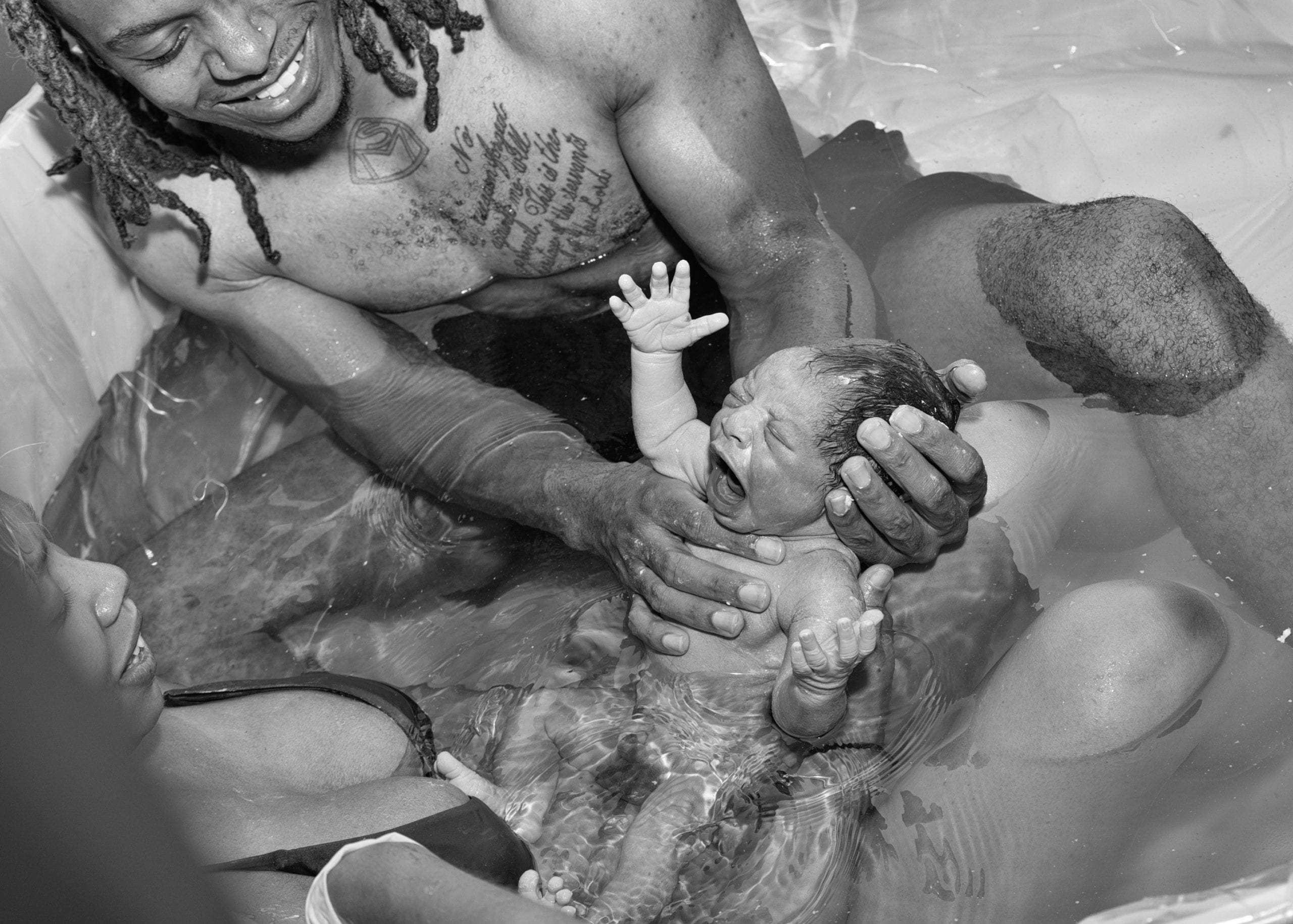Maggie Shannon offers a rare glimpse of new life during the pandemic
'Tsune Brown and her partner Shalom Montgomery hold up their newborn son at the New Life Midwifery Birth Center in Arcadia, CA.' © Maggie Shannon.
Source:
'Midwife Christian Toscano walks up to the apartment of Guadalupe Rios for her prenatal visit in the Highland Park neighborhood of Los Angeles, CA in early March. This was the last week Christian performed home visits before switching to Telehealth due to the outbreak of Covid-19' © Maggie Shannon.
Source:'Student midwife and doula Renae Morales gives Taylor Almodovar a powerful pep talk after Taylor decided to go to the hospital. Taylor had been in very tough and exhausting labor for more than 20 hours and not progressing. She had decided to be transported, despite fears of the hospital warning of a surge in Covid-19 cases.' © Maggie Shannon.
Source:© 2022 - 1854 MEDIA LTD